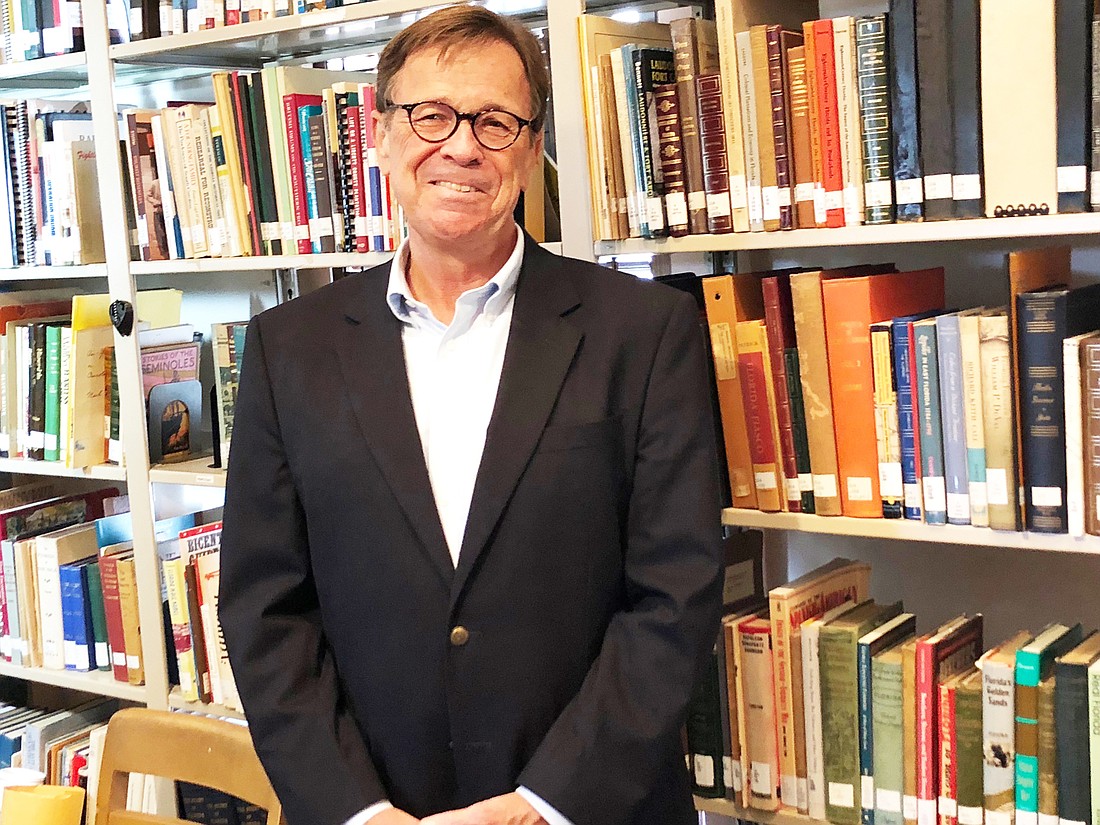
Alan Bliss is executive director of the Jacksonville Historical Society, based Downtown in the Old St. Luke’s Hospital, built in 1878. A University of North Florida history professor, Bliss took the historical society position Aug. 28 after serving as interim executive director since Jan. 2. He joined its board in 2015. With the society a full-time job, he and UNF are looking at options for him to teach a public history seminar.
We are the custodians of the public memory, the institutional memory and many of the private memories and artifacts of Jacksonville’s history. We have tens of thousands of historic photographs. We have letters, manuscripts, documents, minute books, records of organizations, things that are often difficult to preserve in individual collections and that even if they are saved, they’re not accessible to researchers.
When things like that are placed with the historical society, our covenant is that we make it widely available and identifiable so that people anywhere in the world can locate information about some aspect of their interest that relates to Jacksonville.
It was the University of North Florida that brought me to Jacksonville to teach there for the first time in 2006. Jacksonville has lots of things that appeal to me. It has the river. It’s a seaport town. It’s a Navy town. It has the beach. It has a music scene. It has a symphony. It has a diverse community, surprisingly diverse. It has terrible urban problems but so does every city, and that’s part of what interests me.
All of us who are citizens of a great city are intrigued by its problems and helping solve those problems and make it a better city is part of what animates us. It’s certainly part of what interests me and challenges me.
I love boating and I have always been an enthusiastic boater. Not much of a fisherman. I like seafood, but to me, fishing is just a good excuse for a boat ride. I keep a small boat at my condo and use it on the St. Johns River, on the Intracoastal Waterway and on the tributary waters around here. I relish that every chance I get. Jacksonville has an extraordinarily diverse network of waterways.
Part of the Jacksonville Historical Society’s vision is to have a historic exhibition space in the recently created National Register Historic District in Downtown. That would strengthen Downtown, strengthen Jacksonville’s broad identity and strengthen its heritage tourism history. Jacksonville deserves that in a way that is faithful to its history but that reflects its ambitions as a city.
We have custody of four historic buildings. Two of them we own, two of them we occupy under long-term agreements with the city of Jacksonville. The Old St. Andrews Church and the Merrill House are city-owned. The Old St. Andrews church is where we have public events. The Old St. Luke’s Hospital – the first building in Florida built specifically to be a hospital – houses our executive offices and our archives. The other building – the Florida Casket Company Building – is not yet fully active. We acquired it and the hospital in 2012 and we have been trying to digest that acquisition since then.
One of the historical society’s initiatives is an oral history program called Speaking of Jacksonville. We try to capture the oral history interviews of people whose lives reflect the Jacksonville experience. The rule that I try to keep in mind is that the best time to get someone’s oral history interview is as soon as you think of it.